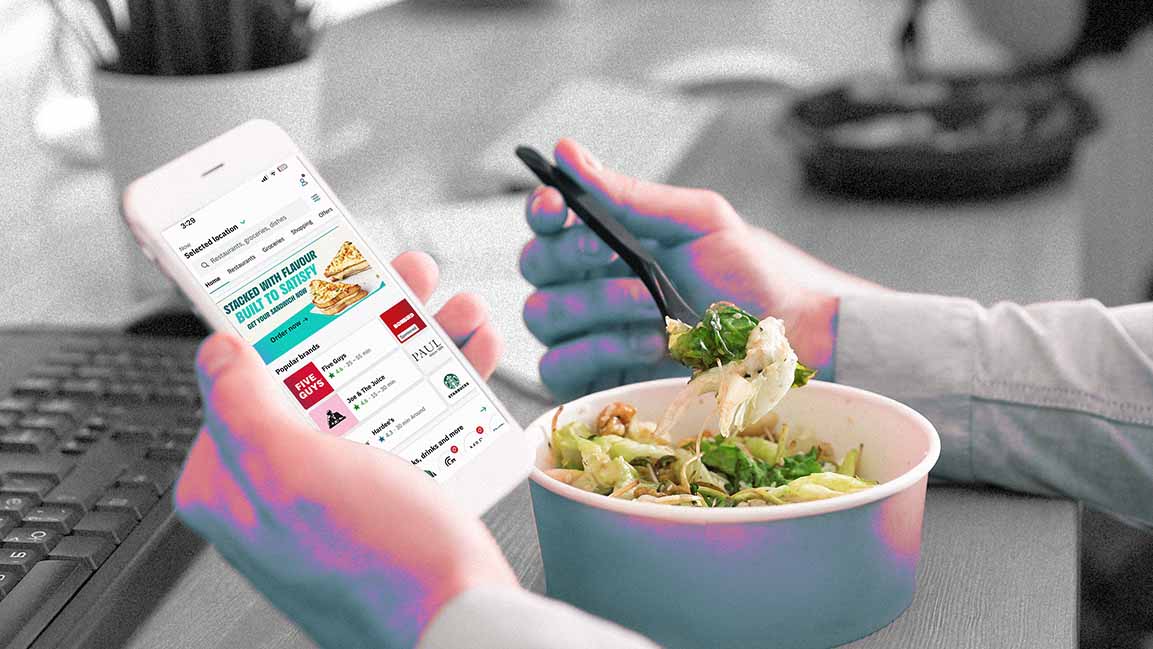- | 10:00 am
Why food is becoming the workplace benefit that really matters in 2025
Francis Henderson, Head of Deliveroo for Work Middle East, on how food is becoming a strategic tool for retention, well-being, and culture

Pizza Fridays, breakfast of champions, and office cakes may feel overdone. But in 2025, food is becoming the workplace benefit that is transforming employee satisfaction and retention.
Francis Henderson, Head of Deliveroo for Work Middle East, says food is no longer just a perk. It is now seen as a strategic business tool, and companies in the region are starting to take it seriously.
A recent Deliveroo market survey found that 82 percent of employers believe food plays an important role in attracting and retaining top talent. More than 60 percent of employees said food perks are a major factor in job satisfaction, second only to health insurance.
DFW data shows a clear shift in workplace food preferences in the UAE, with a growing demand for healthier options. Salads have become the most-ordered items among corporate clients, with popular choices including chicken salad with teriyaki, corn and kale salad, chicken avocado bowls, tuna wraps, and shish tawook. Restaurants such as KCal, Bowlful, Salata, Joe & The Juice, Kababji Grill, and Common Grounds reflect employees’ increasing appetite for fresh, quality-focused meals.
In today’s competitive job market, traditional benefits are no longer enough. As Francis Henderson explains, employees are looking for signs that their employers genuinely care about their well-being, and food is one of the simplest and most effective ways to show it.
It’s not just what you serve, it’s how you serve it.
When it comes to innovative approaches, employers are getting creative. “It comes down to the type of culture a company wants to foster,” says Henderson. “For some, food becomes a tool to make the workplace more vibrant and fun, think doughnut walls, smoothie bikes, or ice cream carts that inject a bit of joy into the day.”
Some companies are using food to build a sense of community and promote wellness, offering everything from off-site team lunches with live cooking stations to in-office breakfast bars and hydration boosters.
Even fully remote companies are jumping on board. “Some send meal kits or curated snack boxes for virtual team events. Imagine a Friday all-hands where everyone eats ramen together over Zoom—it’s small but builds connection.”
BEYOND THE CLICHE
The image of free pizza as the ultimate office perk feels outdated, and employees are well aware of it.
So is pizza enough anymore? “No,” says Henderson.
“Tastes and dietary needs have evolved far beyond free snacks. Employees want flexibility and the ability to choose meals that fit their lifestyle.”
THE BUSINESS CASE FOR FOOD
So, what is the return on investment of a smart food program? As Henderson explains, it is about more than just keeping employees full.
“A healthy, satisfied team is more productive, engaged, and collaborative. Food plays a real role in boosting morale, and that has a measurable business impact.”
Traditional setups like office canteens can be expensive and inefficient. Reimbursing individual meal receipts creates even more complexity. In contrast, modern platforms offer a more streamlined and sustainable solution—covering everything from staff meals and pantry stocking to office buffets and fruit deliveries—all managed through one system with a single monthly invoice.
“For employees, it’s more choice, more convenience, and real support—especially in today’s economy where food costs are rising,” says Henderson.
“And for businesses, it’s a win-win: boost morale, cut down admin, and show your people you care.”
Ultimately, the role of food in the workplace is evolving—from a simple perk to what Deliveroo for Work calls “a meaningful expression of company culture.” It is now seen as one of the most effective ways to keep teams engaged, appreciated, and motivated to stay.
In 2025, a thoughtful food program is no longer just about lunch. It is about loyalty.







































